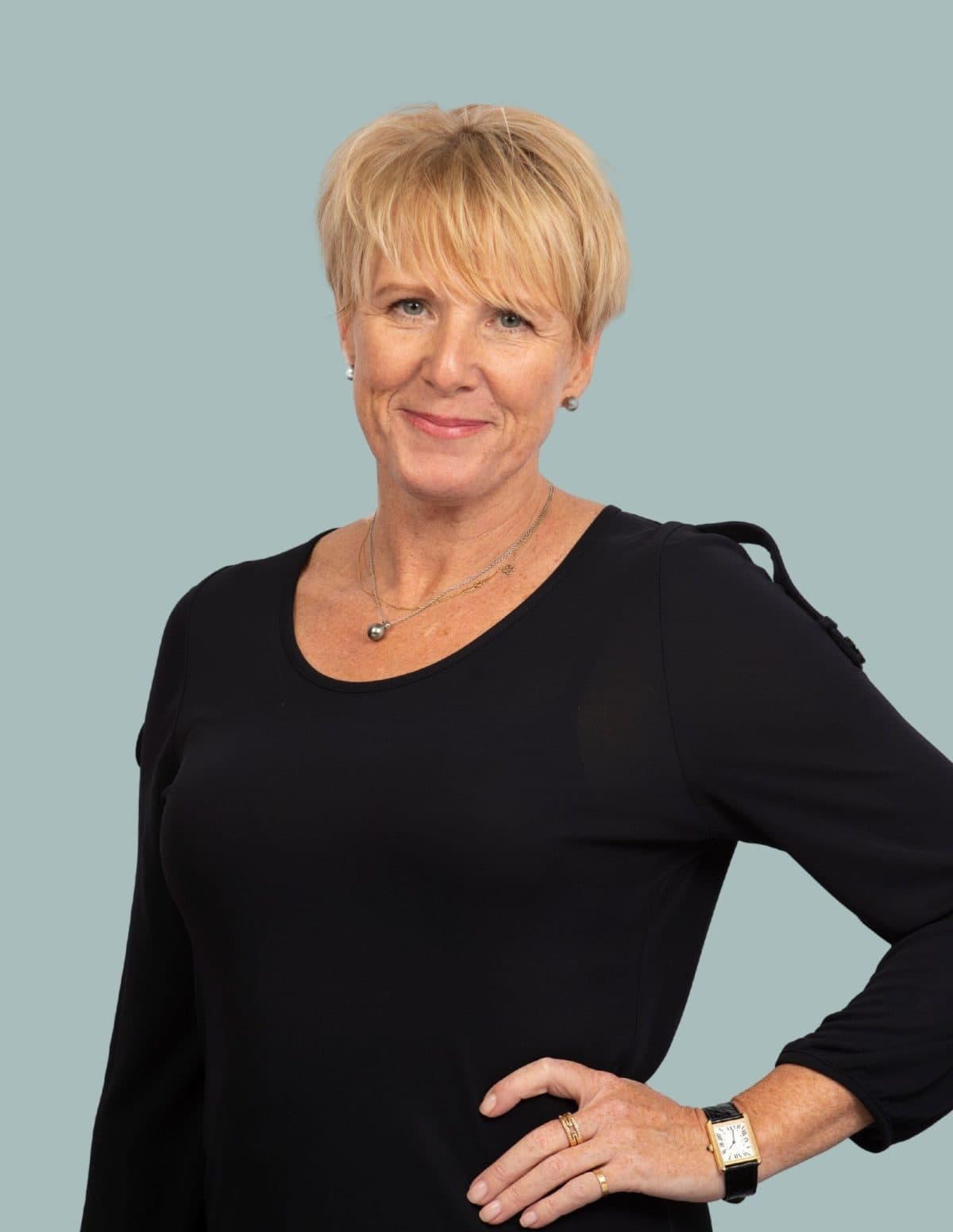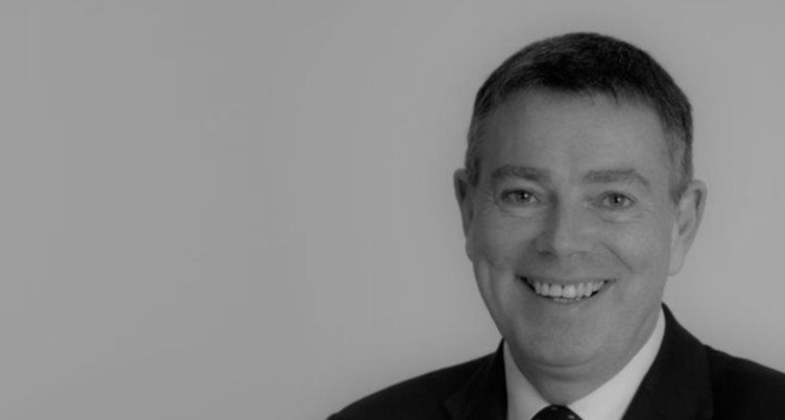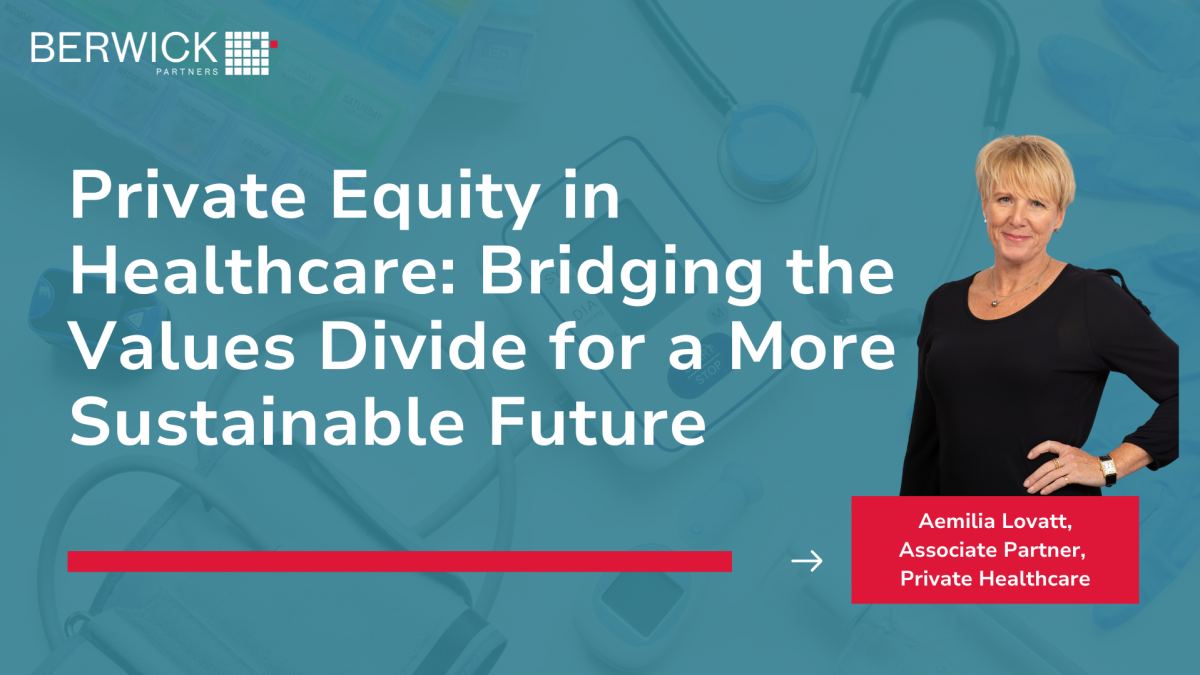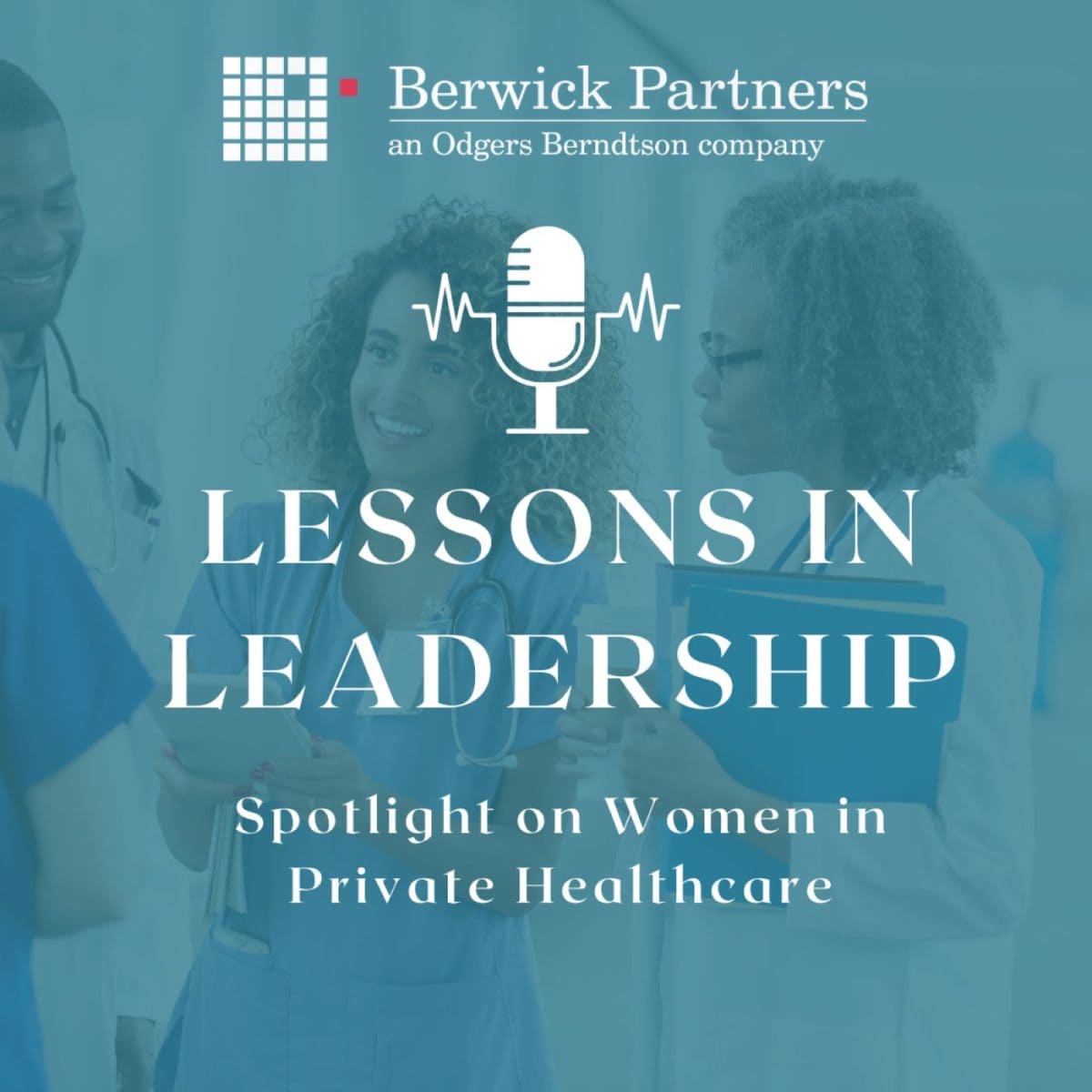Board Evolution: An Interview with Ian Trenholm, Chief Executive, Care Quality Commission
Board Evolution – Berwick Partners are currently undertaking a series of interviews with business leaders, to understand how they and their Boards have adapted and reacted to the increasing complexities of the world in which we operate. We are examining the importance of leadership DNA and the behaviours, traits and skills that are vital to an evolving Board.
As part of this research Berwick Partners’ Aemilia Lovatt spoke with Ian Trenholm, Chief Executive of the Care Quality Commission (CQC) to discuss his role and organisational response to the pandemic, as well as his views on the role that Boards play in sector disruption. As the healthcare regulator in England, the CQC has not just overall responsibility for ensuring our healthcare providers’ services are adhering to national standards but also act as advisor and mediator to healthcare and government bodies.
Since you started in your role as CEO at the CQC up until March this year, what have been your key achievements?
When starting a new role, I always apply the following; get safe, get organised and get going. There were some very obvious practical challenges facing the organisation, one of which was technology. These challenges were preventing us from achieving strategically in terms of being an intelligence driven organisation. So, I recruited new roles into my leadership team and made big investments into technology itself, this has given us a technology platform which was starting to land prior to March 2020 and is part of our long term plan to become an ‘intelligence-led organisation’.
When the pandemic struck in March, we were well placed to leverage the investments we had made and the organisational leadership changes.. The big achievement was to go into the COVID period in one piece and immediately flick a switch whereby everyone was working from home successfully. Prior to March our workforce was split 70/30 – 70% as home workers and 30% office based all round the country. On the day of lockdown, we were able to continue to deliver our services as usual, we used the investments we had made to pivot to a fully home-based workforce. Our core business was all about visiting people in many locations and so being able to do that remotely was a fundamental shift in the way that we were doing business.
You can do that with technology, but this also required a mind shift in your staff – did they respond well to this?
I think they did – my leadership team and I have all grown up accepting that you travelled to engage with your team, communicate the organisation’s plans, and you went out on inspection and met people face-to-face. being ‘present’ was important. What COVID has taught us is that you can have a far greater reach digitally. Now, I talk to my whole organisation twice a week. I have been able to engage with more people than before, as have my senior team. The organisation has been able to hear my authentic voice, my teams have enjoyed hearing what is going on from senior leaders, it has also opened the organisation up. People can see what other parts of the organisation are doing and I have been able to showcase certain individuals.
I have also spoken to other CEOs who have been similarly surprised by the impact of this new digital world. We have run staff surveys and have seen massively increased levels of engagement. I have decided that I would like to continue to talk to the organisation every week regardless of where we land with COVID, this is going to be part of my leadership tool set but it won’t replace my inherent desire to talk to people face-to-face. It has taught me a lesson as a leader that regularity of reach is probably more important than a smaller reach, but higher quality. The visibility of both me and my senior team has been much greater and the ability to bring teams together has been fascinating, whereas before bringing large numbers of people together physically used to take weeks or months to organise. We have proved that we can do things lightning fast, sometimes those things are not perfect but quite a lot of training and change can be delivered more rapidly than we thought possible.
Would you say that was the biggest change to your leadership in the last 6 months and has COVID brought about other changes?
We rapidly developed a different approach to understanding how health and care services were keeping people safe during COVID and beefed up our ability to monitor that without going into services and increasing the risk of bringing COVID in or out of them. If you take March to September 2019, we did 9,000 on-site inspections and for the same period this year we did 19,000 structured calls, so we had more contact. On average we probably see a third of our registered providers each year in the old world, so could we somehow now get to the point where we have contact with all providers over the course of a year? Based on the tools available on the table now, that is potentially possible but that brings with it a question of risk appetite.
At the moment, we are doing work in infection prevention in social care and that is being done by making hundreds of relatively short visits in combination with remote monitoring. This will give the public confidence around infection prevention in a care home. What it won’t necessarily do, is give the deep qualitative view that we used to have as we are not sitting with residents, chatting to them and observing what is going on for long periods of time. The question for us is which of those is more important. In my opinion, I believe we are going to end up looking at a hybrid process, there will be some hard measures around risk, with specific processes and procedures in place in terms of what we would expect to see. The softer side will need a bit more work in terms of what that might look like in a COVID-world.
We have seen a big uptick in the public sharing their experience of health and care with us via our Give Feedback on Care service, by phone and online but that is generally quite negative information which will trigger an inspection. As an organisation, we need to think about how we position ourselves as a place where people will also talk about positive experiences to introduce a balance, so we can share what works well to help other health and care providers improve.
Moving forward and as we approach a second wave of COVID, and potentially further lockdown measures, how do you see the CQC dealing with that and what is the strategy moving forward? Will you be refining what you have already achieved or are there different strategies on the horizon?
If I look back to when I first started, we believed the way in which we were regulating was too admin heavy; providers were saying to us that they understood the need for regulation, but could we do it less frequently or in a different way? We have always had the ambition to be more streamlined, and the technology investments are taking us on a stepped journey. What COVID has done is to give us an opportunity to prototype some things and to get into the conversation about risk – we talk about being a risk-driven and intelligence-driven enterprise, but actually what does that mean?
COVID has given us the opportunity to unpack that in a way that we probably wouldn’t have done so previously. It has accelerated our journey and a new way of working. Our inspections are now more digitally led, and we have decision support tools in the hands of inspectors by doing more work off-site and reaching into providers. We are now more willing to try new things that we might have been a bit more cautious about before.
It has also shown our providers that there are different ways of doing things, providers are always nervous when a regulator changes their methodology and they wonder whether they will be disadvantaged. We have developed different relationships with providers, they now see us as being more supportive than we traditionally were. We have continued to take enforcement action with some providers where needed, but a lot of providers are seeing us as being helpful and recognising us as being able to do things behind the scenes with the government for example, where we can influence, persuade and carry messages from the front line. My own team have been able to be more supportive to providers whereas before they were concerned that that might compromise their ability to enforce, but they now know they can judge and coach at the same time.
How are healthcare providers and their Boards managing the pandemic?
I think they are generally managing well, what we have seen is a definite willingness to pivot their operational models whilst being prepared to make big, courageous, tough decisions in a way that they wouldn’t have done before. I have seen people make good decisions and some organisations have done that better than others – some have owned the problem and moved forward, whereas some have tended to look for government support to solve the problem, not appreciating that actually the government doesn’t always have the answer.
I have been impressed with the independent healthcare market – they seem to have organised themselves as a group and we heard relatively little from them bar them letting us know what they have been doing. They have engaged with the NHS and come up with different operating models and that has gone well. I think social care is more difficult as the nature of their work is more challenging as they were quite often coping with supporting large numbers of ill people whilst others are dying in their services. Social care had to keep people safe ending up in this very difficult place of trying to protect residents and staff around the home and at the same time, enable people to visit their loved ones because of course it is still their home.
How do you think we will see boards change as we move forwards? What skills or behaviours do you feel will endure?
There is a really important point for a Board to manage risk. Most Boards don’t talk about risk to the enterprise that often, whereas what COVID has taught us all is that there are risks to your enterprise regardless of whether you are a public or private entity, and those risks are massive and real. No one saw this coming and certainly no one was prepared for this.
There is something about a Board being prepared to hear the quiet voices. Jeremy Hunt often quotes the fact that the reason that Hong Kong did so well in the first wave is that every care home had three months’ worth of PPE in the stock cupboard. The reason they had that was because they had SARS 2/3 years ago which didn’t go well, so they learnt that lesson. Perhaps the situation here would have been different if someone had said to a healthcare provider Board that they had read about SARS in a news article and asking should we be reacting to it, instead of this being dismissed because it is happening on the other side of the world? Boards need to listen more to those quiet voices.
A key Board skill is to lift up some of those things which may be seen as a minor niggles and address any learnings from a situation. The Board needs to hold executives to account to ensure the learnings are practically digested. I am certainly more aware of that as a Board member in my enterprise that we need to lift our heads a little, bringing learnings into the Board meetings on a relentless basis, acting early to prevent some of these things happening. COVID has taught us that it is possible to have a global pandemic in a way which none of us really believed was likely. We had all read the story about the Spanish flu in 1918 and all believed we were now in a better place. However, I think the risk for a Board is also not to overlearn those lessons as organisations can become paralysed. We need to recognise that Boards matter, and are often the only people that are looking over the horizon when things get very busy.
For more information, please contact Aemilia Lovatt, Principal Consultant, Healthcare Practice at Berwick Partners.





